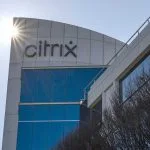Mark Zuckerberg appears to be sending a message with the latest addition to Meta’s board: The company will continue to do things his way – activists, politicians and concerned shareholders be damned.
Zuckerberg’s company said last week that Tony Xu, co-founder and CEO of nonprofit food delivery giant DoorDash, would become the newest member of its 10-person board of directors.
Xu and Zuckerberg have a lot in common: both are 37-year-old billionaires, both have created ownership structures that give them an extraordinary degree of control over their own businesses – and both are ready to burn huge sums of money to fight their political enemies.
“They’re birds of a feather,” Melanie Sloan, a government and corporate ethics attorney said.
In a typical publicly traded company, shareholders can vote out a CEO during a time of crisis — like when Instagram was caught pushing eating disorder pictures to teen girls, or DoorDash was accused of pocketing tips that customers thought were going to delivery workers.
But Zuckerberg and Xu are essentially immune to such crises because of a mechanism called dual-class stock, which generally assigns more votes to shares owned by founders than shares owned by the public. This system means that Zuckerberg controls about 58% of all votes on Meta, while Xu and his two co-founders control about three-quarters of all votes on DoorDash.
“No matter how many shareholders Facebook may have, they will never be able to outvote Mark Zuckerberg,” Sloan said.
Sloan said that Zuckerberg’s selection of Xu, another founder with near-complete control of his own firm, shows he doesn’t plan to give up any power in the future — no matter how many critics like Facebook whistleblower Frances Haugen and hordes of angry lawmakers on Capitol Hill may complain.
“You’ve just put somebody who is intent on maintaining total control of his company onto the board of another company with another founder who wants to maintain total control of his own,” Sloan said.
Proponents of founder control and dual-class stocks argue that empowering successful founders like Zuckerberg and Xu is not a problem, as they build companies first.
According to University of Florida finance professor Jay Ritter, who studies corporate governance and technology IPOs, Zuckerberg’s move is not surprising because the founders of Silicon Valley are increasingly holding their companies with an iron grip, even when they go public.
A whopping 46.2% of tech companies going public in 2021 used dual-class stock structures — an all-time high and more than double what it was five years ago, according to Ritter’s research
“Dual-class shares have definitely become more common,” Ritter told The Post. “I’m sure Zuckerberg would not have invited somebody onto the board who’s a vocal opponent of dual class shares and founder control, but I don’t think that’s something that would rule out a huge number of potential board numbers.”
.







